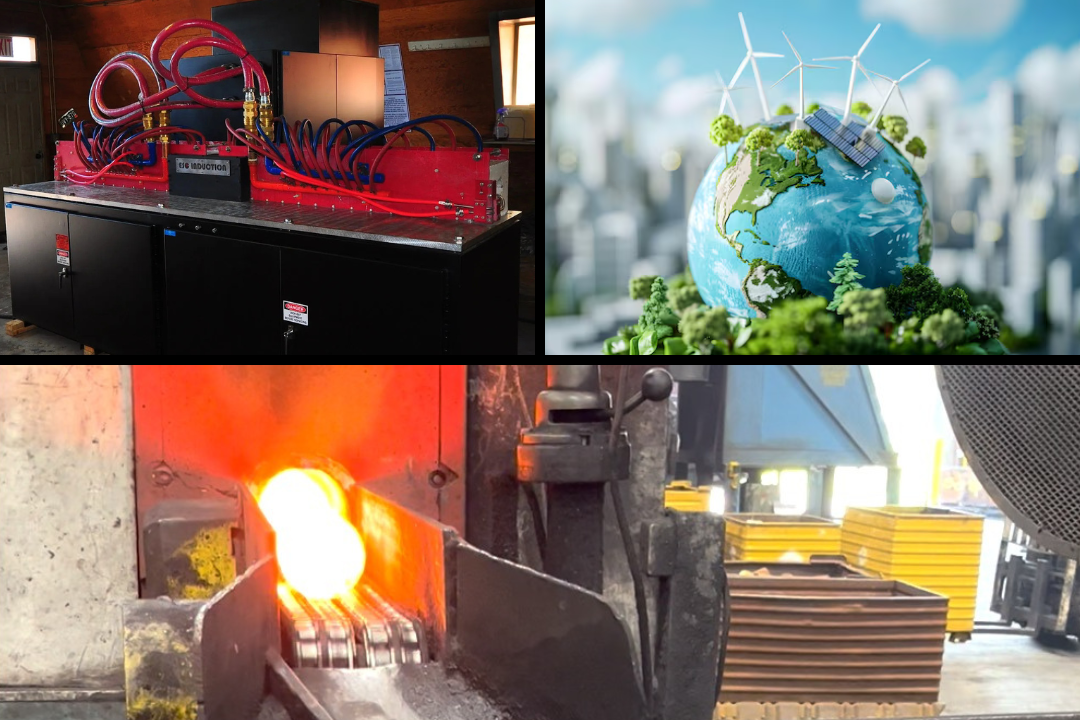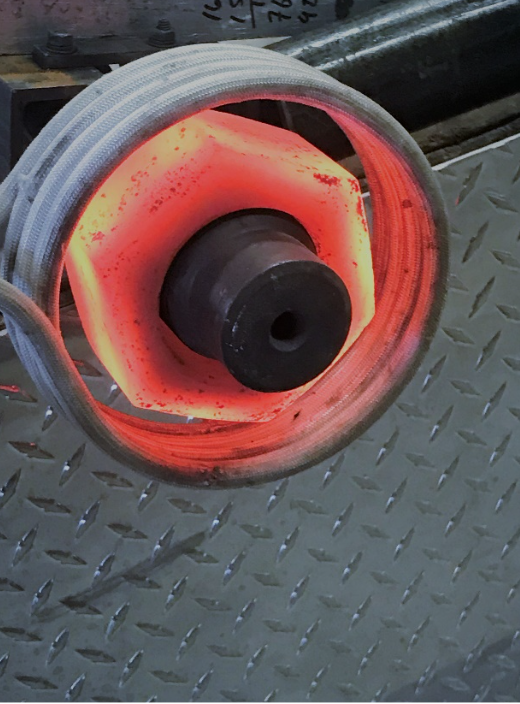Upgrading to Advanced Induction Heating Technology: A Strategic Move for Energy Efficiency, Compliance, and Sustainability
In today's competitive industrial landscape, the decision to upgrade to advanced induction heating technology isn't just a luxury—it's a strategic necessity. Whether your goal is to reduce energy waste in manufacturing, ensure ISO 9000 compliance, or enhance your company's sustainable manufacturing solutions, modern industrial induction heating systems like those offered by ThermESC Intl. can be the key to achieving these objectives.
This blog will explore how upgrading your induction heating equipment can lead to significant energy savings, streamline regulatory compliance, and contribute to a greener planet. We'll also delve into a real-world case study where ThermESC Intl.'s cutting-edge technology transformed a forging application, yielding impressive results.

How Advanced Induction Heating Technology Reduces Energy Waste
Energy efficiency is a top priority for industries aiming to cut operational costs and reduce their environmental impact. Traditional induction heating technology, while effective, often falls short when it comes to energy efficiency.
Upgrading to modern systems like ThermESC Intl.'s ForgeMax series can drastically reduce energy waste and improve overall industrial process efficiency.
Case Study: ForgeMax Series in Action
Consider a recent project where we replaced an outdated 30-year-old 750KW induction machine using SCR (Silicon Controlled Rectifier) technology with our custom ForgeMax 750KW IGBT (Insulated Gate Bipolar Transistor) technology.
This upgrade wasn't just about installing new equipment—it was about transforming the entire production process.
The previous system was consuming excessive energy, leading to high operational costs and unnecessary waste. After installing the ForgeMax induction heater, the results were remarkable. The new system reduced energy waste by over 35% and increased production speed by 10%. On an annual basis, the upgraded system is projected to reduce kilowatt usage by 25%, translating into substantial cost savings with induction heating and a much smaller environmental footprint.
The ForgeMax system isn't just more energy-efficient—it's also smarter. The installation included a state-of-the-art distilled water-to-water heat exchanger, ensuring that the induction heater runs on clean water, which is crucial for maintaining the system's efficiency and longevity. Additionally, we implemented a complete forging material handling line, fully integrated with the induction heater's HMI (Human-Machine Interface). This setup allows for seamless control and monitoring of the entire process, from bin-tipping to feeding billets into the forge press.
The Impact of Energy Efficiency
The benefits of such an upgrade extend beyond just reducing energy consumption. By minimizing energy waste, companies can significantly lower their carbon emissions, contributing to broader environmental goals. Furthermore, the energy savings translate directly into lower operating costs, freeing up resources that can be reinvested into other areas of the business. This highlights the induction heater upgrade benefits that companies can expect when they adopt energy-saving technologies.
Meeting ISO 9000 Regulations with Advanced Induction Heating Technology
Compliance with ISO 9000 regulations is a critical concern for many industries, particularly those involved in manufacturing and production. These standards focus on quality management, ensuring that companies consistently meet customer and regulatory requirements. Upgrading to modern induction heating technology can be a crucial step in meeting these standards.
How Technology Enhances Quality Management
Older industrial induction heating systems often struggle to maintain the consistency and precision required for ISO 9000 compliance. Variations in heating can lead to inconsistencies in product quality, which can have serious implications for businesses operating in highly regulated industries.

ThermESC Intl.'s ForgeMax series, however, offers unparalleled control and precision. The system is designed to deliver consistent heating, ensuring that every billet is heated to the exact temperature required for forging. This level of control is critical for maintaining the high-quality standards mandated by ISO 9000.
Moreover, the integration of advanced HMI controls allows for real-time monitoring and adjustments, further enhancing the system's ability to produce consistent, high-quality results. This not only helps in maintaining compliance with ISO 9000 but also boosts overall manufacturing efficiency and reduces the likelihood of costly errors or defects.
Reducing Your Carbon Footprint with the Latest Induction Heating Technology
As industries around the world strive to reduce their environmental impact, the demand for sustainable industrial technology has never been higher. Upgrading to modern induction heating systems is an effective way for companies to shrink their carbon footprint while also improving their bottom line.
The Environmental Benefits of Reduced Energy Consumption
One of the most significant environmental benefits of advanced induction heating technology is the reduction in energy consumption. As demonstrated in our case study, upgrading to ThermESC Intl.'s ForgeMax series can cut energy waste by over 35%. This reduction not only lowers operating costs but also significantly decreases the amount of energy drawn from the grid, which in turn reduces greenhouse gas emissions.
In industries such as automotive forging, where large amounts of energy are required to heat materials to extremely high temperatures, the environmental impact of such savings can be substantial. By adopting energy-efficient induction heaters, companies can contribute to global efforts to combat climate change while also positioning themselves as leaders in green manufacturing practices.
Supporting Corporate Sustainability Goals
Beyond the immediate environmental benefits, upgrading to advanced induction heating technology can also support broader corporate sustainability goals. Many companies today are committed to reducing their carbon footprint and achieving net-zero emissions. By reducing energy consumption and minimizing waste, modern environmentally friendly heating systems can play a key role in helping companies reach these targets.
Moreover, companies that invest in sustainable technologies often find that their efforts resonate with customers, investors, and other stakeholders. In today's market, sustainability is not just a buzzword—it's a critical factor that can influence purchasing decisions, attract investment, and enhance a company's reputation.

Case Study: How ThermESC Intl.'s Technology Saves Energy and Boosts Sustainability
Let's revisit our earlier case study to see how these benefits play out in a real-world scenario.
The ForgeMax series induction heater was installed at a facility specializing in forging parts for the automotive industry. The previous equipment, a 30-year-old 750KW induction machine using outdated SCR technology, was not only inefficient but also prone to breakdowns, leading to costly downtime and repairs.
After upgrading to the ForgeMax 750KW IGBT technology, the facility experienced a 10% increase in production speed, which allowed them to meet growing demand without expanding their workforce or operational hours. More importantly, the new system reduced energy waste by over 35%, which translated into significant cost savings and a reduced carbon footprint.
In addition to the energy savings, the new system also contributed to improved product quality. The consistent heating provided by the ForgeMax series ensured that every billet was heated to the precise temperature required, reducing the likelihood of defects and rework. This improvement not only helped the facility maintain compliance with ISO 9000 regulations but also boosted their reputation for quality, leading to increased customer satisfaction and repeat business.
Why Upgrading Your Induction Heating Technology is a Smart Move for Compliance and Sustainability
For companies considering an upgrade to their induction heating systems, the benefits are clear. Modern systems like ThermESC Intl.'s ForgeMax series offer significant advantages in terms of energy efficiency, regulatory compliance, and sustainability. But beyond these immediate benefits, upgrading your induction heating technology is also a smart long-term investment.
Balancing Compliance and Environmental Impact
As industries face increasing pressure to comply with environmental regulations and meet sustainability goals, the need for energy-efficient technologies will only continue to grow. Upgrading to advanced induction heating systems allows companies to stay ahead of these trends, ensuring that they remain compliant with current regulations while also preparing for future challenges.
Moreover, by investing in sustainable industrial technology, companies can reduce their reliance on fossil fuels, lower their carbon emissions, and contribute to global efforts to combat climate change. These efforts not only benefit the environment but also enhance a company's reputation and can lead to increased customer loyalty and market share.

The Economic and Environmental Advantages of Modern Induction Heating Technology
The decision to upgrade to advanced induction heating technology should not be viewed solely as a cost—rather, it's an investment that can yield significant economic and environmental returns.
Economic Benefits of Advanced Induction Heating Systems
On the economic side, the energy savings alone can be substantial. As demonstrated in our case study, upgrading to the ForgeMax series resulted in a 25% annual reduction in kilowatt usage, which translated into lower utility bills and reduced operational costs. Over time, these savings can more than offset the initial investment in new equipment.
Additionally, the increased production speed and improved product quality resulting from the upgrade can lead to higher revenues and profitability. By reducing the likelihood of defects and rework, companies can reduce waste, improve efficiency, and enhance their overall competitiveness in the market.
Environmental Benefits of Upgrading the Induction Heating Process
From an environmental perspective, the benefits are equally compelling. Reducing energy waste by over 35% leads to a corresponding decrease in carbon emissions, which helps companies meet their sustainability goals and comply with environmental regulations. Moreover, by investing in environmentally friendly heating systems, companies can enhance their reputation as responsible corporate citizens, which can attract customers, investors, and other stakeholders who prioritize sustainability.
How ThermESC Intl. Can Help You to Upgrade Induction Heating Technology for Energy Efficiency, Compliance, and Sustainability
Upgrading to advanced induction heating technology offers a range of benefits that extend beyond just energy efficiency. By reducing energy waste, improving product quality, and supporting sustainability goals, modern systems like ThermESC Intl.'s ForgeMax series can help companies achieve their operational and environmental objectives. Whether you're looking to comply with ISO 9000 regulations, reduce your carbon footprint, or simply cut operational costs, upgrading your induction heating technology is a smart move that can yield significant long-term returns.
Contact us
Mailing Address
POB 1453, Fort Morgan, CO 80701
Shipping Address
6104 Cr F, Wiggins, Colorado 80654, United States
All Rights Reserved | ThermESC Intl | Website Design by Full Circle Business Results



